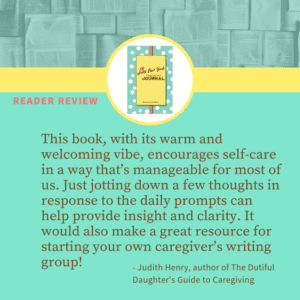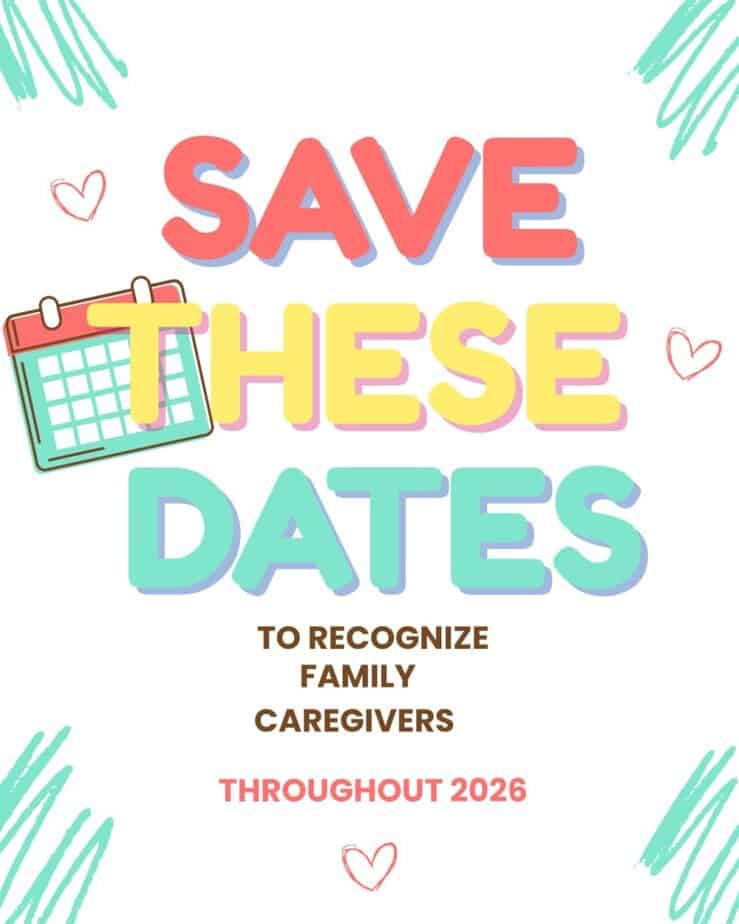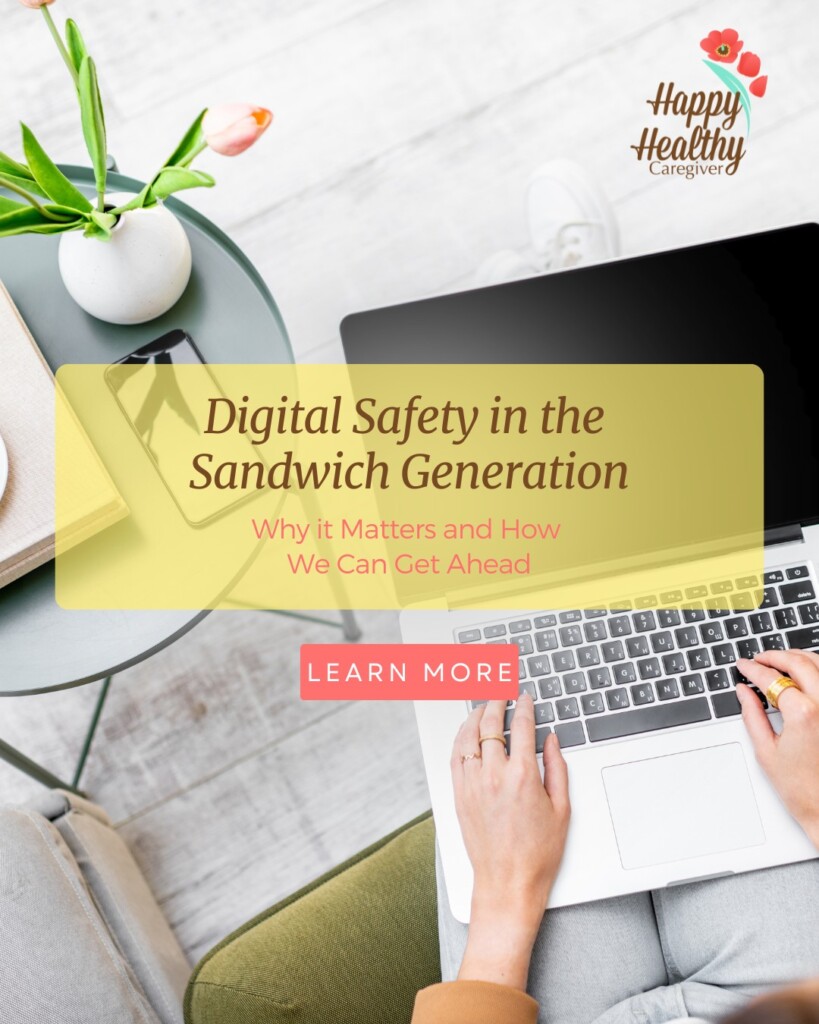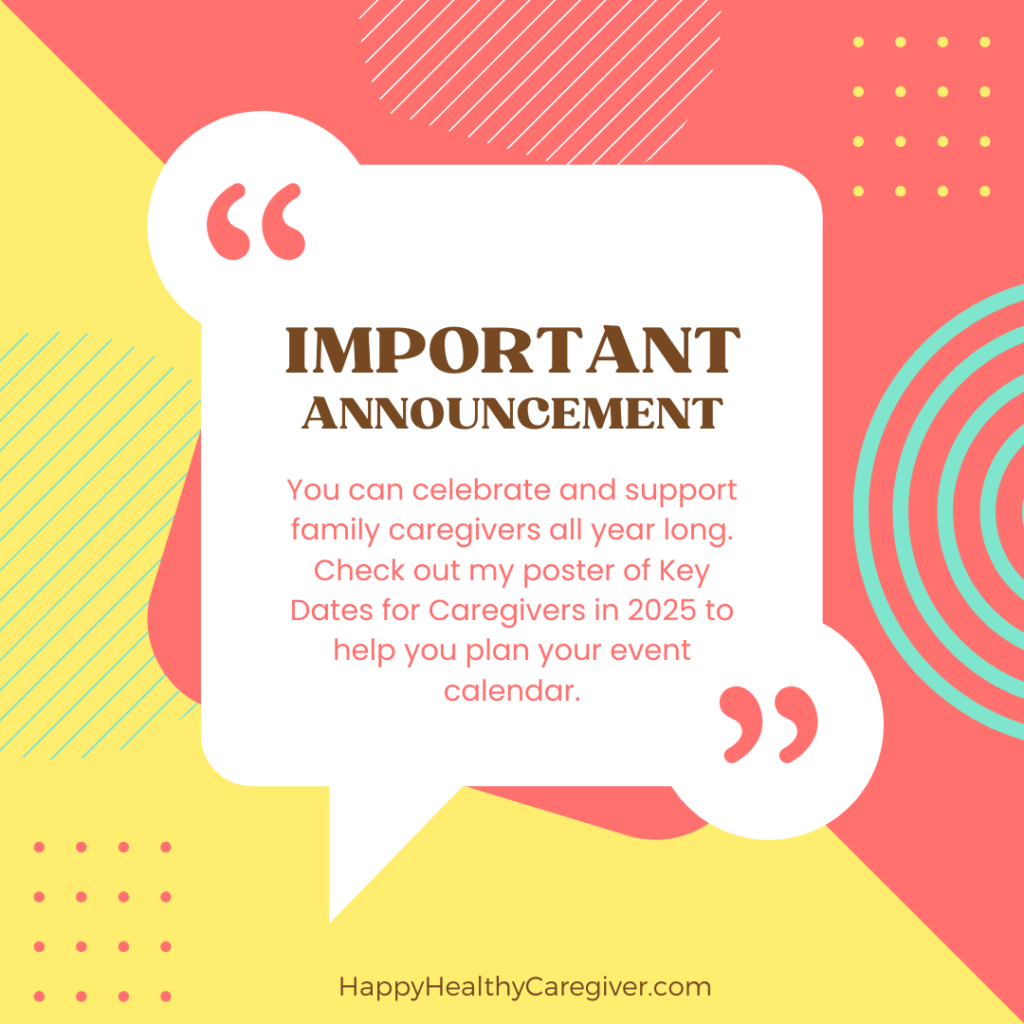This is sponsored content written by me in partnership with Depend® brand. All thoughts and opinions are my own. Look for a special offer from Depend brand at the end of this post.
How long did it take you to self-identify as a family caregiver?
I assume you already view yourself as a family caregiver or someone who supports family caregivers. If you didn’t, you wouldn’t even know all Happy Healthy Caregiver has to offer.
Reflecting, do you wish you knew you were called a caregiver sooner?
I wish I knew. When I first assumed the role of primary caregiver for my mom, I felt highly stressed, overwhelmed, and isolated. If I self-identified as a family caregiver sooner, I would have connected to helpful resources much earlier in my caregiving journey.
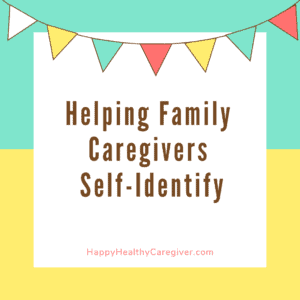
I Didn’t Know I was a ‘Caregiver’
Years went by before I self-identified as a ‘family caregiver.’ I knew there were professional caregivers helping people in their homes and in wellness facilities, but I didn’t make this connection for myself.
Back in 2014, after internet searches and scouring Amazon for books to help me cope, I landed on the term ‘sandwich generation’ (i.e. someone squeezed between caring for aging parents and raising their children) and I thought, “Wow! That’s me!”
I don’t remember the exact moment when the term ‘caregiver’ clicked for me. Self-identification came after I created my website. Looking back at my early posts, the first time I indirectly referred to myself as a caregiver was five months into blogging. The post was called ‘Seven ways to pay your health first and still be a super caregiver.’
I have enjoyed meeting many family caregivers over the years. One common thread I hear, particularly in the Happy Healthy Caregiver podcast Caregiver Spotlight conversations, is how many didn’t self-identify as a ‘caregiver.’ They simply thought they were a daughter, son, husband, wife, or parent helping their loved one.
Does this sound familiar to you?
What’s Helping Caregivers Self-Identify
For more individuals to self-identify as a ‘family caregivers,’ we need our healthcare professionals, corporations, and spiritual communities to help us connect.
These groups see us accompanying our loved ones to doctor appointments, sitting by the hospital beds, asking questions, pushing wheelchairs, making phone calls, shedding tears about our situations or purchasing items to help our care recipients live their best life.
No one said, “You’re probably feeling overwhelmed by all of this. Before you leave today, I will provide you with resources to support and help you as the family caregiver.” Hearing those words early on would have been amazing.
Positive trends are happening. Particularly in the past year, I have noticed events and organizations that connect family caregivers to supportive resources.
I want to highlight three of these: National Caregivers Day, celebrity articles, and corporate recognition.
National Caregivers Day
Today is National Caregivers Day. Each year the third Friday in February is a day set aside to celebrate caregivers.
Founded in 2015 by Providers Association for Home Health & Hospice Agencies (PAHHHA), National Caregivers Day helps the millions of family caregivers self-identify and raise awareness to the vital work they are doing.
My hope is people see their friends use #NationalCaregiversDay in social posts and make the connection for themselves.
Celebrities Who Understand Caregiving
Celebrity articles are raising awareness to what life is like for them as family caregivers.
Seeing Rob Lowe or Brittany Spears prompts people to read the article, and then somewhere in the written words the ‘a-ha moment’ happens when they realize they are a caregiver and no longer feel alone.
Other famous people helping to raise awareness for caregivers include Maria Shriver, Leeza Gibbons, Rosalynn Carter, Patrick Dempsey, and even “The Rock” Dwayne Johnson.
Companies Recognizing Caregivers
I’m also delighted to see companies support and recognize family caregivers. The Depend® brand recently launched a Caregiver Toolkit and is giving up to 50 FREE toolkits to family caregivers. The Caregiver Toolkit contains Depend FIT-FLEX Underwear product samples and a great selection of self-care items.
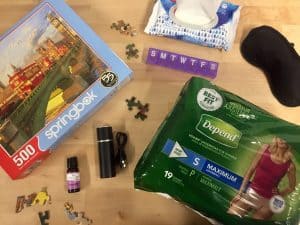
The Depend Caregiver Toolkit contains:
- Easy-to-use pill box to help keep either you or your care recipient organized
- Portable phone charger because we never know when a caregiving crisis may occur
- Sleeping mask to help us catch some zzz’s at the hospital or wherever our caregiving journey takes us
- Kleenex® Wet Wipes to clean up any germs or messes while on-the-go
- Jigsaw puzzle which can be a great self-care activity to do with our care recipient or to pass the waiting time
- Lavender essential oil to diffuse or dab on our pillows to promote calm, relaxation and sweeter dreams
- Caregiver mug to affirm the work we do and encourage self-identification in our workplace
- Depend FIT-FLEX Underwear to ensure your care recipient always feels comfortable and confident. With more sizes than before, Depend FIT-FLEX Underwear provides a better fit for all different body shapes and sizes.
To receive a free Depend Caregiver Toolkit, please click here. For more information, follow Depend on:
Take Action
If you are a family caregiver, how will you celebrate YOUR day and reflect on your impact on others’ lives? What action below will you take to help others self-identify as family caregivers so they will receive the support they need?
Actions to take to help share the care:
- If you know of someone caring for a loved one, send them a Happy National Caregivers Day note, letting them know about the free Depend Caregiver Toolkit.
- Use the social icons on this page to share this post on your social media channels. Personalize the post with a few sentences about how you self-identified as a family caregiver.
- Share a picture of you and your care recipient on Instagram or Facebook and tag it #NationalCaregiversDay.
- When you share stories about caring for others, ask your friends if they know they are called a ‘family caregiver.’ They may minimize their role by saying, “I just….call my mom to remind her to take her meds/accompany my dad to doctor’s appointments/do their grocery shopping/help them pay the bills.” Then you say, “I know, I used to think this, too, but those activities are precisely what family caregivers do!
- Talk with your doctors and health providers about family caregivers struggling with self-identification. Share your personal story about how you wish you had self-identified earlier because now you feel supported. They may not even realize their vital role in helping family caregivers self-identify.
Reader Reviews for the “Just for You: a Daily Self-Care Journal”


